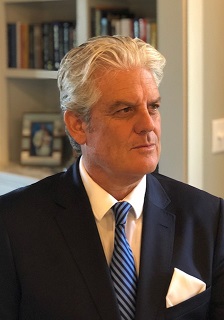From the CEO – February 2022
“And from the point of view of composition, it is so complex that it only becomes clear much later when all the ‘themes’ have begun to coalesce.”
– Marcel Proust, a letter to a friend describing In Search of Lost Time (1913-27)

Dear Clients,
Proust’s novel has occupied a prominent place on the PRS bookshelves for some time and for good reasons. The work offers a unique take on memories – from triggering events to insights into our perceptions of material items and emotions at present and in the past – to a subtle longing for a time in French society that predated the formal declaration of war by Germany in 1914.
These themes are apt at present given the ongoing invasion of Ukraine by Russia, which now appears to be entering a more brutal phase with Russian troops continuing to strike military and civilian buildings alike, with reports from the US about various human rights abuses being committed in Ukraine. Indeed, the invasion is the first full scale war in the center of Europe since the end of WWII, and one that makes the disruptions and pain felt during the two-year pandemic pale by comparison.
We warned clients of the likelihood of an invasion last October and adjusted the relevant risk metrics to the conflict in November and through to February. Yet the spillover effects of the conflict – some of which we are beginning to materialize – will serve the enlarge a menu of geopolitical risks both on a regional basis and globally. I’ll touch on a few now.
The refugee situation – over half a million Ukrainians have fled the conflict to date – will put additional pressures on the coffers of countries such as Poland, Romania, and Moldova, and exacerbate some of the byproducts of the pandemic: rising poverty and unemployment. While the refugees are being welcomed – even by Romania despite past tensions – how long the accommodation will be tolerated remains questionable. To be sure, the unity of Europe to the crisis and the welcoming attitude towards those fleeing the conflict is admirable. But it must be recalled that during the last migrant disaster to hit Europe – mostly Syrians fleeing the civil war – some tensions between EU members arose, arguably creating right-leaning populist movements and policies designed to stem the flow of the refugees.
The economic and trade dimensions of the conflict – and their unavoidable entanglement with the politics of the invasion – are also significant. Russia has grown its exports to parts of the Middle East over the past decade (e.g., wheat shipments to Egypt) and some of the oligarchs targeted by the US and other nations’ sanctions hold property in Dubai. So far, the countries of the region have remained silent on the crisis. But should the effects of the sanctions begin to be felt more acutely throughout the area, the hitherto silence of these countries should soon vanish.
It should also be mentioned that the sanctions will do little to help in the transfer of remittances to such countries as Tajikistan, Uzbekistan, and Kyrgyzstan, which comprise significant contributions to the GDP of these nations (some 30% of GDP for Tajikistan, as an example).
A crashing rouble presents obvious problems in terms of buying power outside Russia. During the 2014 annexation of Crimea by Russia, the sanctions imposed by the US reduced Tajikistan’s by half during the 2013-16 period. Remittances to Uzbekistan fell by 30% and by 25% to Kyrgyzstan. These nations were only just beginning to see a normalization of inflows given the effects of the pandemic.
Investors should think about how just this aspect of the conflict will affect a range of geopolitical risks, from social turmoil wrought by inflationary pressures to the security of the equity and cash flows of foreign commercial enterprises.
Ultimately, there will be a military solution to the conflict as well as a political one. That’s a given. But PRS doesn’t believe the invasion will come to an end anytime soon. And during the weeks and months ahead the global dominance of the US and the Western-led international order that it created after World War II will be tested. Moreover, stagflation is not a word many of us have heard for some time, but it is on the verge of becoming a very real possibility, tying the hands of central banks, and laying the foundation for a thinkable global recession.
Turning to the ratings for February, some notables are worth mentioning. In the Americas, Bolsonaro’s approval ratings continue to disappoint, despite some surprising Brazilian employment numbers. Prime Minister Trudeau suddenly dropped the utterly unbelievable state of emergency law in the wake of the peaceful truckers ‘le convoi de la liberte.’ Over half of Canadians recently polled think the country is ‘on the wrong track.’
In Africa, Ethiopia’s parliament voted to end its own state of emergency legislation early, saying that the security situation had stabilized. Yet the country’s relations with Egypt and Sudan over Grand Ethiopian Renaissance Dam have taken a turn for the worse, with Cairo and Khartoum holding that recent actions by Addis Ababa violate the principles of a 2015 agreement. Mining contracts are being revisited/suspended in Zambia as a means of rooting out elements of corruption from the previous regime.
In Asia, consumer confidence is improving in China, and the country’s foreign policy towards Russia and the conflict in Ukraine appears to be one of distancing from Moscow. Vietnam’s border is being reopened after COVID-19 cases have eased, and the country’s parliament recently voted on a $15bn+ stimulus package to spur growth.
And in the Middle East, US talks with Iran over a revival of the 2015 nuke deal continue. Tehran has recently raised the stakes, telling the world that it is ‘now or never’ for a deal to be forged. Finally, in Morocco, thousands protested high fuel costs and general price inflation amidst growing evidence of Russian military interests in the country.
Earlier this month I met with Marat Akhmetzhanov, Chairman of Kazakhstan’s Anti-Corruption Agency, and his staff to discuss several of the ongoing initiatives given January’s events. The session was Informative to say the least, with Kazakhstan eyeing the importance of SME development as a means of addressing socio-economic disparities.
I’ve also accepted invitations to Riyadh this year to participate in ministerial meetings involving the Anti-Corruption Authorities of the Gulf Cooperation Council (GCC) and the Organization of Islamic Cooperation (OIC). Other participants include representatives from the World Bank, the IMF, and the OECD.
My new book Quid Periculum? Measuring & Managing Political Risk in the Age of Uncertainty, co-edited and co-authored by Peter Marber (Harvard/Aperture Investors) is now available! The book includes such diverse topics as risk forecasting techniques, reliability measures, the impact of political risk on asset prices and sovereign debt workouts. Also featured is a special roundtable discussion by some of the world’s leading voices in the field on the future of political risk, who combine to address some of the challenges presented by globalization and COVID-19.
February was another fruitful month for new and returning clients, ranging from some of the world’s top universities to the largest institutional investors throughout the US, Europe, the UK, and the Middle East and Asia. Our data are now regularly featured in the research of the IMF, Bank for International Settlements, and various central banks, such as the Bank of Italy.
ICRG and related PRS data continue to be the gold standard of all geopolitical risk data among the scholarly and research communities. In a recent study released as part of the IMF’s Occasional Papers series, the question: do natural resources jeopardize a country’s fiscal sustainability even before ‘the first drop of oil is pumped’ was asked. Using our ICRG data on corruption, and several other metrics as a proxy for overall political stability, the study found that giant discoveries, mostly of oil and gas, lead to permanently higher government debt and, eventually, debt distress episodes, especially in countries with weaker political institutions and governance. (https://lnkd.in/dUP_4GbN)
Thanks for your continued support, and please contact us if we can be of any assistance.

Chief Executive

PRS INSIGHTS
Moving beyond current opinions, a seasoned look into the most pressing issues affecting geopolitical risk today.
EXPLORE INSIGHTS SUBSCRIBE TO INSIGHTS
